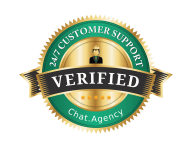Choosing the right customer service provider is crucial for your business. A great provider can help keep your customers happy and loyal. This guide will walk you through the main steps to find the perfect fit for your needs, ensuring long-term success and satisfaction.
Table of Contents
ToggleKey Takeaways
- Understand your specific business needs before searching for a provider.
- Check if the provider can grow and adapt with your business.
- Make sure the service is easy for your team to use.
- Look for a provider that integrates well with your current systems.
- Compare costs and make sure you’re getting good value.
Understanding Your Business Needs
Identifying Pain Points and Challenges
Before you start looking for a customer service provider, it’s important to understand your business needs. Begin by identifying the pain points and challenges your business faces. Are there issues with communication, data collection, or problem resolution? Knowing these areas will help you find a provider that can address them effectively.
Defining Specific Requirements
Once you’ve identified the challenges, define your specific requirements. What features or services are essential for your business? Whether it’s streamlined data collection or enhanced communication, having a clear list of requirements will guide your decision-making process.
Setting Clear Objectives
Finally, set clear objectives for what you want to achieve with a new customer service provider. Do you aim to improve customer satisfaction, increase efficiency, or drive sales growth? Having well-defined goals will help you measure the success of your chosen provider.
Understanding your business needs is the first step in choosing the right customer service provider. It lays the foundation for all subsequent decisions and ensures that the provider you choose can meet your specific needs.
Evaluating Scalability and Flexibility
Assessing Future Growth Potential
When choosing a customer service provider, it’s crucial to consider how well they can grow with your business. Scalability and flexibility are key factors that help meet your business growth demands and market changes. A scalable provider can handle increased workloads without compromising service quality. This ensures that as your business expands, your customer service remains top-notch.
Ensuring Adaptability to Change
In today’s fast-paced market, adaptability is essential. Your customer service provider should be able to quickly adjust to new technologies, market trends, and customer needs. This adaptability means they can provide the time-efficient benefit of cloud scalability, allowing for faster time to market and more business flexibility.
Considering Long-Term Viability
Lastly, think about the long-term viability of the provider. Will they be able to support your business not just now, but in the future? A provider with a strong track record and the ability to evolve with your business is a valuable partner. This ensures that your customer service operations remain effective and efficient over time.
Considering User-Friendliness

Importance of an Intuitive Interface
When choosing a customer service provider, the interface should be intuitive. This means it should be easy to use and navigate. A simple interface helps employees quickly learn the system, reducing the time needed for training. This is crucial for maximizing customer satisfaction with premium live chat outsourcing.
Training and Onboarding Requirements
Effective training and onboarding are essential for any new system. The provider should offer comprehensive training programs to ensure that your team can use the system efficiently. This includes tutorials, webinars, and hands-on sessions. Proper training helps in building customer trust and loyalty.
Employee Adoption and Feedback
For a system to be successful, employees must adopt it willingly. Gather feedback from your team to understand their needs and challenges. This will help in making necessary adjustments and improving the system. Employee feedback is vital for real-time problem-solving and enhancing overall customer experience.
Ensuring Integration Capabilities
Compatibility with Existing Systems
When choosing a customer service provider, it’s crucial to ensure that their systems are compatible with your current tools. Seamless integration helps in maintaining a smooth workflow and avoids disruptions. Look for providers that can easily sync with your CRM, marketing automation, and analytics platforms.
Streamlining Workflow and Processes
A well-integrated system can significantly streamline your business processes. By connecting various tools, you can create a more efficient workflow. This not only saves time but also reduces the chances of errors. Consider how the provider’s services can help in streamlining workflow and making your operations more efficient.
Enhancing Data Sharing and Communication
Effective data sharing and communication are vital for any business. An integrated system ensures that information flows smoothly between departments, enhancing collaboration. This is particularly important for managed services, where outsourcing responsibilities require clear and consistent communication. Make sure the provider supports robust data-sharing capabilities to keep everyone on the same page.
Prioritizing Customization Options
Tailoring Features to Business Needs
Every business is unique, and a one-size-fits-all approach may not address specific needs adequately. Prioritizing customization options in a customer service management solution allows businesses to tailor the software to their specific requirements. Whether it’s custom fields, workflows, or reporting functionalities, the ability to customize ensures optimal alignment with business processes.
Adjusting to Industry-Specific Requirements
Different industries have different needs. For example, a healthcare provider will have different requirements compared to a retail business. Customization options should allow for these industry-specific adjustments, ensuring that the software can handle the unique challenges and regulations of your field.
Evaluating Vendor Support for Customization
When considering customization, it’s crucial to evaluate the level of support the vendor offers. Some vendors provide extensive support for customization, while others may offer limited options. Make sure to check if the vendor can help you personalize the product or service to the customer individually. This support can be a game-changer in how effectively you can implement and benefit from the software.
Customization is not just a feature; it’s a necessity for businesses looking to optimize their customer service management solutions.
Reviewing Pricing and Cost Structure
When selecting a customer service provider, it’s crucial to understand the pricing and cost structure. There should be no hidden costs. The value of the service should match the cost you are paying.
Understanding Different Pricing Models
Different providers offer various pricing models. Some common ones include:
- Per-minute or per-hour pricing: You pay based on the time spent on customer service.
- Subscription-based pricing: A fixed monthly fee for a set of services.
- Tiered pricing: Different levels of service at different price points.
Comparing Costs Across Providers
To find the best deal, compare the costs of different providers. Look at what each provider offers and how much they charge. Make sure to consider any additional fees or charges that might apply.
Assessing Value for Money
It’s not just about the price; it’s about what you get for your money. Evaluate the cost-effectiveness of the service. Does the provider offer features that will help your business grow? Are they using price optimization to ensure you get the best value?
Always ensure that the service’s value aligns with its cost. This will help you make a more informed decision and avoid any surprises later on.
Verifying Provider Reputation and Reliability

Checking References and Reviews
To ensure you choose a reliable customer service provider, start by checking references and reviews. Look for feedback from previous clients to get a sense of their experiences. This can help you identify any obvious strengths or weaknesses. You can find reviews on industry forums, Google, and Yelp.
Evaluating Industry Experience
Consider the provider’s industry experience. A company with a long history in your specific industry is more likely to understand your unique needs and challenges. This experience can be crucial for providing effective and efficient service.
Conducting a Trial Period
Before making a final decision, conduct a trial period. This allows you to evaluate the provider’s performance in real-time and see how well they integrate with your existing systems. A trial period can reveal potential issues and help you make a more informed choice.
A reliable partner enhances customer engagement and satisfaction, crucial for business success.
Before choosing a service provider, it’s crucial to check their reputation and reliability. This ensures you get the best service possible. Want to learn more about how to verify a provider’s credibility? Visit our website for detailed tips and guides.






